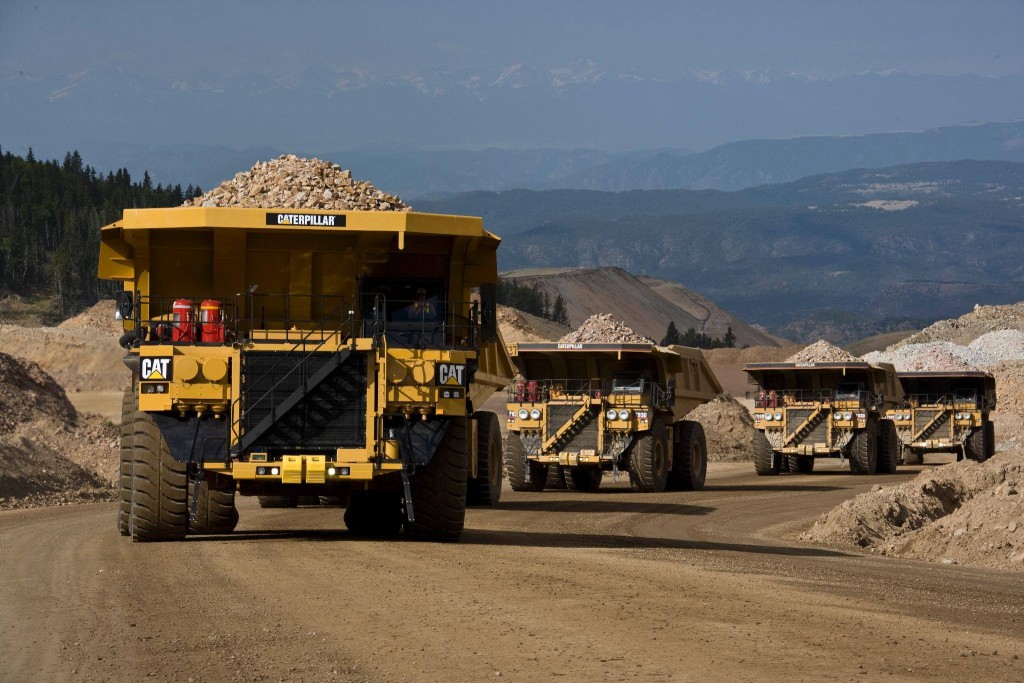
Three years after a commodity slump left their finances in shambles, mining companies are swimming in so much cash that investors aren’t sure where the industry will spend it all.
With metals from zinc to palladium trading at multi-year highs, four of the world’s top producers generated combined free cash flow last year of about $87 million a day. Some of the unprecedented windfall is earmarked for dividends, which companies including BHP Billiton Ltd. and Glencore Plc cut or eliminated during the slump.
Where the rest of the money goes — into new mine projects, acquisitions or a bank account — remains one of the big unanswered questions for executives, investors and bankers attending Africa’s biggest mining conference, which begins Monday in Cape Town. Companies may be reluctant to spend too much, given the disastrous results of rapid expansions a few years ago.
Three years after a commodity slump left their finances in shambles, mining companies are swimming in so much cash that investors aren’t sure where the industry will spend it all.
“You can’t give it all back,” said Ben Davis, an analyst at Liberum Capital Markets in London. “There will be some M&A towards the back end of the year. No one wants any new mines, but you have to use this money for something, and it’s not all going as dividends.”
BHP, Glencore, Rio Tinto Group and Anglo American Plc generated $31.9 billion of free cash flow during their 2017 fiscal years, which exceeds their haul during the last commodity boom in 2011, according to analysts estimates compiled by Bloomberg. In 2018, the flow will be an estimated at $31.2 billion, encouraging companies to give more back to shareholders.
Anglo is set to make its first annual dividend since 2015. Rio Tinto, which made a record $2.5 billion interim payout last year and bought back more than $2 billion of shares, is forecast to make its highest ever full-year dividend and buy back another $1.9 billion of stock. Even Glencore, which usually favors deals over dividends, in December promised to double its payout this year.
Still, even after those distributions to shareholders, the industry will have $80 billion in excess cash over the next three years, according to Macquarie Group Ltd. Companies are likely to use some money to pursue growth opportunities, but they don’t have a lot of options for new projects over the next year or so, Macquarie said.
For analysis of slow spending on mining takeovers, click here.
During the last commodity boom, companies built too many mines, borrowed too much and made a lot of bad deals — all of which soured when prices went south. To stay afloat, producers sold assets and cut costs to become leaner, and now they’re reluctant to repeat their mistakes.
Just last month, Rio dropped out of the bidding for a stake in one of the world’s biggest lithium mines, which was valued at $5 billion.
Such restraint has helped the bottom line as prices rebounded. Copper, nickel and iron ore are up more than 50 percent from market lows in early 2016, while precious metals have posted double-digit gains.
The Bloomberg World Mining Index, which tracks 117 company shares, has doubled since touching a 12-year low in January 2016. After reporting losses in 2015, the companies reported their highest combined profit last year since 2012.
“They are now a lot more disciplined in their investment plans,” said Alex Crooke, co-head of equities at London-based Janus Henderson Group Plc, which oversees about 268.7 billion pounds ($305 billion). “They are being quite modest, and that makes me happy.”